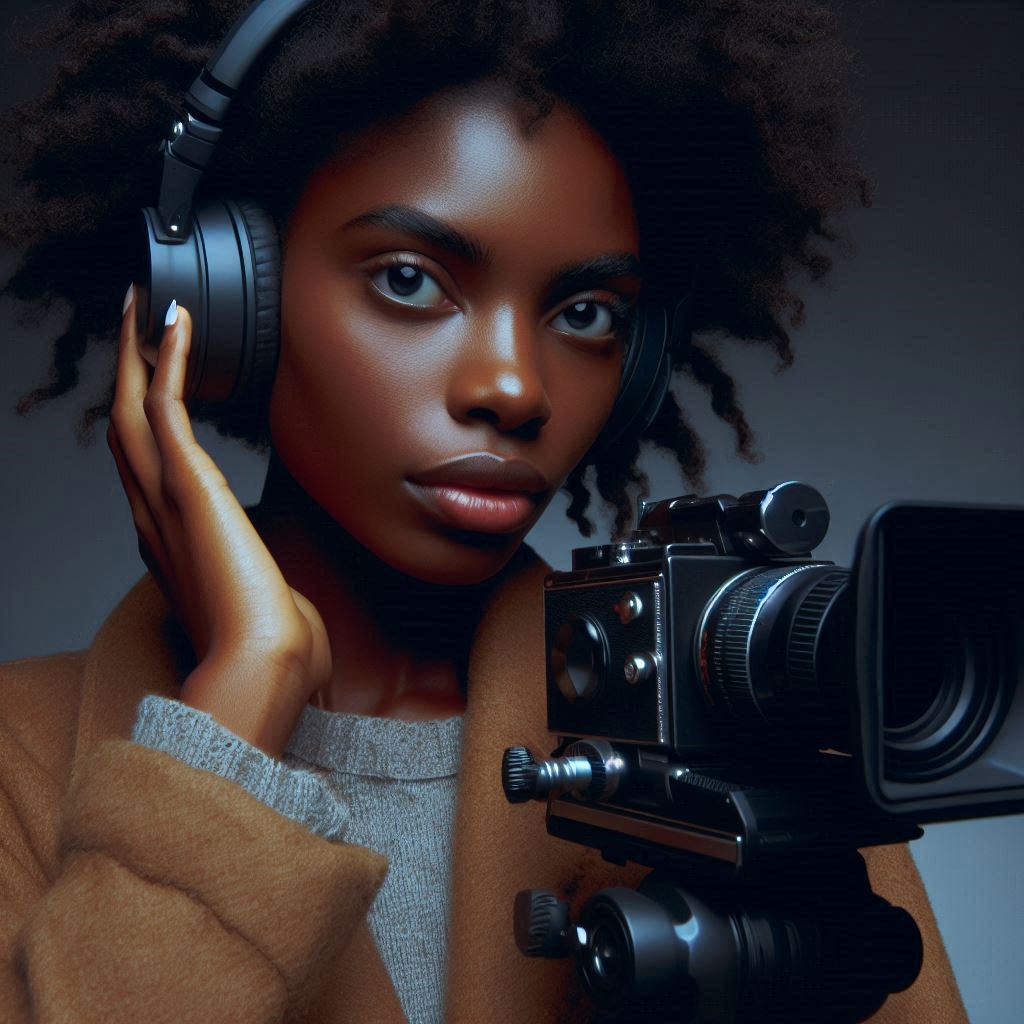Nigerian tribal arts and cultures cut across the many ethnic groups in the country. Different tribes have different ways of making things, like Yoruba beadwork, Igbo masks, and Benin bronze sculptures. Each tribe has its own traditions, techniques, and styles that show its history, beliefs, and values.
Therefore, looking at Nigerian tribal arts and crafts is a great way to see how creative people can be, and it is really beautiful too!
Why not join us as we explore Nigerian tribal arts and crafts is an incredible journey through the richness of human creativity.
Historical Background of Nigerian Tribal Arts and Crafts
Nigerian tribal arts and crafts have a rich history and evolution, dating back thousands of years. These art forms are deeply rooted in the culture and beliefs of the Nigerian people and have played an essential role in preserving their cultural heritage.
The history of Nigerian tribal arts and crafts can be traced back to the Nok civilization, which flourished between 500 BC and 200 AD. The Nok people were certainly skilled in pottery, and their terracotta sculptures are some of Africa’s oldest surviving art pieces. In addition, the Nok art style is characterized by the representation of human figures and animals.
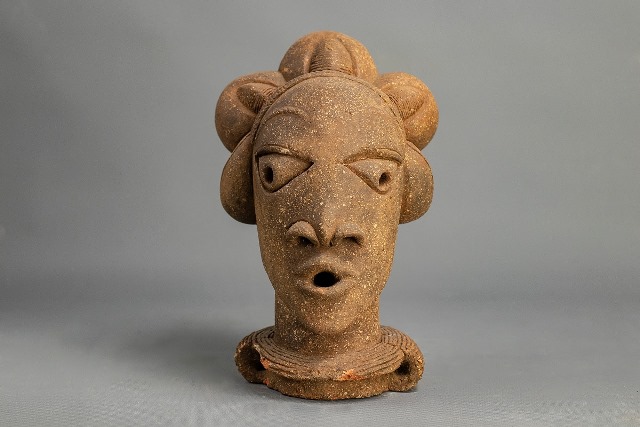
Over time, different ethnic groups in Nigeria developed their unique artistic styles and techniques. For example, the Ife kingdom in present-day Osun State is known for its naturalistic and intricate bronze sculptures.
The Benin kingdom in present-day Edo State is renowned for its lost-wax casting technique used to create intricate bronze sculptures. Additionally, the Igbo people of southeastern Nigeria are known for their colorful and intricate masks used for religious ceremonies and social events.
The arrival of European colonial powers in Nigeria in the late 19th century significantly impacted the development of Nigerian tribal arts and crafts. The colonial powers also saw these art forms as primitive and inferior, discouraging their production.
However, the Nigerian people continued to create these art forms in secret and passed on their skills and techniques to future generations.
In the post-colonial era, Nigerian tribal arts and crafts experienced a resurgence in popularity. The newly independent government of Nigeria recognized the cultural and economic importance of these art forms and promoted their production and export. This increased interest in Nigerian tribal arts and crafts from collectors and art enthusiasts worldwide.
Nigerian Tribal Arts and Crafts
Nigeria’s extensive art and crafts represent the creative expression of the people’s cultural identity, beliefs, and values. They are a testament to Nigerians’ artistic and creative skills, who are known for their unique approach to art.
The most famous Nigerian tribal arts and crafts are Yoruba beadwork, Igbo masks, and Benin bronze sculptures. Moreover, these forms of art reflect the history and cultural heritage of each tribe.
Yoruba Beadwork
The Yoruba tribe is known for its exquisite beadwork. Beads are an essential part of Yoruba culture, and they are used for various purposes, including decoration, religious rites, and social events.
Yoruba beadwork is often very intricate using small glasses or plastic beads.
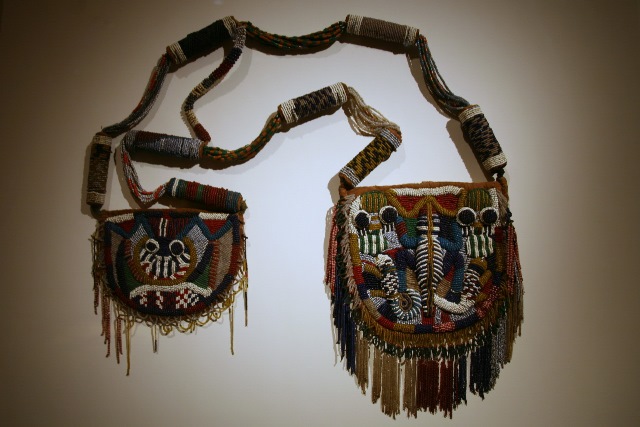
Additionally, the techniques used in Yoruba beadwork vary depending on the type of beadwork being done. Some techniques include loom beading, applique, and embroidery. The materials used in Yoruba beadwork include beads, thread, and fabric.
One of the most famous examples of Yoruba beadwork is the gelede mask. The gelede mask is worn during a festival held in honor of women. The mask represents the power of women and is decorated with intricate beadwork.
Igbo Masks
The Igbo tribe is known for its colorful masks, which are used for various purposes, including religious rites, entertainment, and social events. Igbo masks are usually made from wood and are decorated with bright colors and intricate designs.
The techniques used in Igbo mask-making vary depending on the mask being made.
We Design & Develop Websites, Android & iOS Apps
Looking to transform your digital presence? We specialize in creating stunning websites and powerful mobile apps for Android and iOS. Let us bring your vision to life with innovative, tailored solutions!
Get Started Today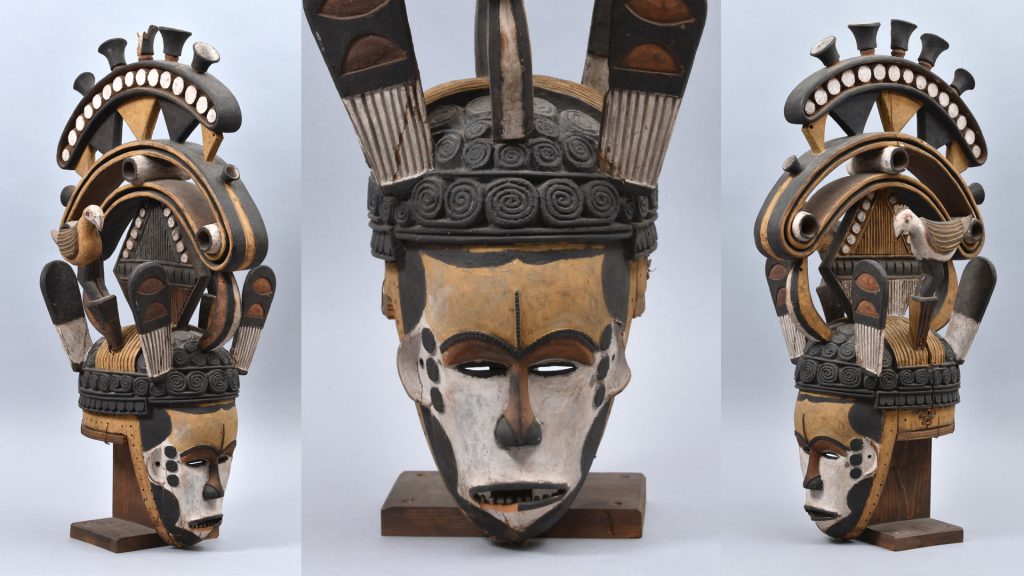
Some techniques include carving, painting, and embellishment. The materials used in Igbo mask-making include wood, paint, and beads.
One of the most famous examples of Igbo masks is the Agbogho Mmuo mask. Young women wear the Agbogho Mmuo mask during a festival that celebrates femininity. The mask is also decorated with intricate beadwork and is painted in bright colors.
Benin Bronze Sculptures
The Benin kingdom is known for its bronze sculptures, some of the most exquisite African art examples. Benin bronze sculptures were created during the 16th century and were used for various purposes, including religious rites, decoration, and tribute.
Moreover, the techniques used in Benin bronze sculpture vary depending on the sculpture being made. Some techniques include lost-wax casting and engraving. The materials used in Benin bronze sculpture include bronze, copper, and brass.
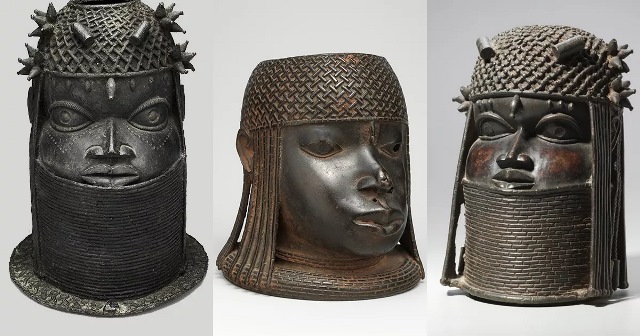
One of the most famous examples of Benin bronze sculptures is the Queen Idia mask. The Queen Idia mask represents the mother of the Oba, the king of Benin. This historical mask is decorated with intricate designs and is made from bronze.
Furthermore, the significance of Nigerian tribal arts and crafts goes beyond their beauty and creativity. They represent the culture, tradition, and history of the Nigerian people. They are also a way of preserving and passing on cultural heritage from generation to generation.
Read: The Diversity of Nigerian Tribes: A Look at the Unique Cultures and Traditions
Significance of Nigerian Tribal Arts and Crafts
Nigerian tribal arts and crafts are not only a showcase of creativity and beauty but also have great significance in the culture and history of Nigeria. These art forms represent the Nigerian people’s identity, beliefs, and values and are a testament to their artistic and creative skills.
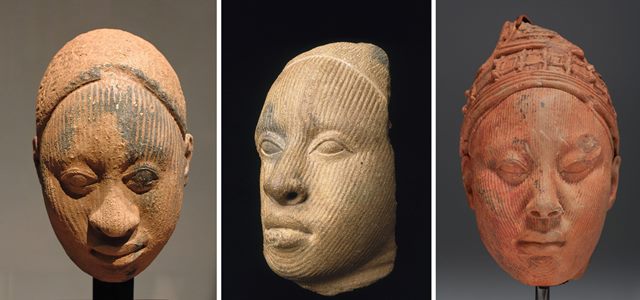
Connection to Culture and Tradition
Nigerian tribal arts and crafts are deeply rooted in the culture and traditions of the various ethnic groups in Nigeria. These art forms reflect the Nigerian people’s rich cultural heritage. And they also play an essential role in preserving and passing on cultural traditions from generation to generation.
For example, Yoruba beadwork is an essential part of Yoruba culture, and it is used for various purposes. This includes decoration, religious rites, and social events. The intricate designs and patterns on the beads reflect the beliefs and values of the Yoruba people.
Similarly, Igbo masks are an integral part of Igbo culture, and they are used for various purposes, including religious rites and social events. The masks are often decorated with intricate designs and patterns that reflect the cultural identity of the Igbo people.
Expression of Identity and Beliefs
Nigerian tribal arts and crafts are also an expression of the identity and beliefs of the Nigerian people. These art forms are used to convey messages and ideas that are important to the various ethnic groups in Nigeria.
For example, the Benin bronze sculptures were used to depict the power and wealth of the Benin kingdom. These sculptures were often used to honor the king and for various purposes, including decoration and tribute.
Similarly, Igbo masks depict the spiritual world and are often used for religious ceremonies. The masks are decorated with intricate designs and patterns that reflect the spiritual beliefs of the Igbo people.
Impact on the Art World
Besides their local impact, Nigerian tribal arts and crafts have had a riveting impact on the art world. These art forms have influenced modern art and inspired many artists worldwide.
For example, the Benin bronze sculptures have been a source of inspiration for many artists, including Pablo Picasso. The intricate designs and patterns on the sculptures have been incorporated into modern art and have influenced many artists worldwide.
We Design & Develop Websites, Android & iOS Apps
Looking to transform your digital presence? We specialize in creating stunning websites and powerful mobile apps for Android and iOS. Let us bring your vision to life with innovative, tailored solutions!
Get Started TodaySimilarly, Yoruba beadwork has also influenced modern art. The intricate designs and patterns on the beads have been incorporated into modern fashion and jewelry, inspiring many designers worldwide.
Read: Contemporary Issues Facing Nigerian Tribes
Challenges Facing Nigerian Tribal Arts and Crafts
Although Nigerian tribal arts and crafts have a long history and rich cultural significance, they face various challenges threatening survival. These challenges include a decline in traditional art forms, the loss of skilled artisans, and the impact of globalization on the art market.
As Nigeria becomes increasingly urbanized, many younger Nigerians are losing touch with their cultural heritage and are less interested in traditional art forms.
Moreover, this decline in demand for traditional art forms has led to decreased production, which could ultimately result in the loss of essential cultural traditions.
Another challenge is the loss of skilled artisans. Many skilled artisans who created Nigerian tribal arts and crafts have passed away. And few younger people are interested in learning these traditional art forms. This loss of skilled artisans could result in a decline in the quality of the art produced, making it difficult to preserve the authenticity and cultural significance of these art forms.
The impact of globalization on the art market is also a significant challenge for Nigerian tribal arts and crafts.
Many traditional Nigerian art forms are being copied and sold as mass-produced items, which reduces the value and authenticity of the original art pieces.
Additionally, the global art market is highly competitive, making it difficult for traditional Nigerian art forms to compete with modern and contemporary art forms.
However, efforts are being made to address these challenges facing Nigerian tribal arts and crafts. The Nigerian government is taking steps to promote and preserve traditional art forms by creating cultural centers and supporting initiatives to train young people in traditional arts and crafts.
The private sector also invests in traditional art forms, supports artisans, and promotes their works through exhibitions and other events.
Before you go…
Hey, thank you for reading this blog to the end. I hope it was helpful. Let me tell you a little bit about Nicholas Idoko Technologies. We help businesses and companies build an online presence by developing web, mobile, desktop, and blockchain applications.
We also help aspiring software developers and programmers learn the skills they need to have a successful career. Take your first step to becoming a programming boss by joining our Learn To Code academy today!
Put Your Tech Company on the Map!
Get featured on Nicholas Idoko’s Blog for just $200. Showcase your business, boost credibility, and reach a growing audience eager for tech solutions.
Publish Now








